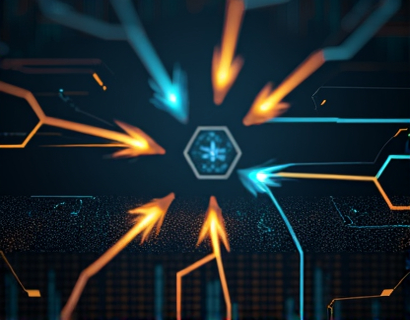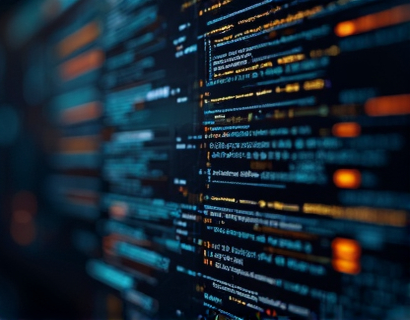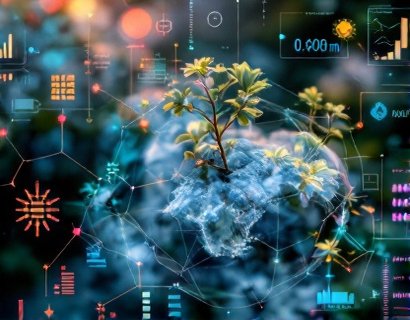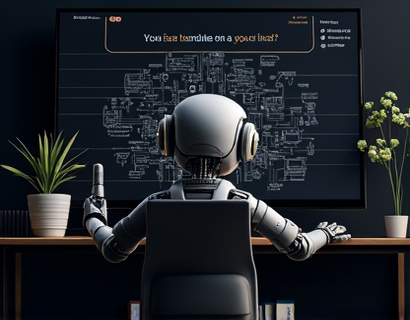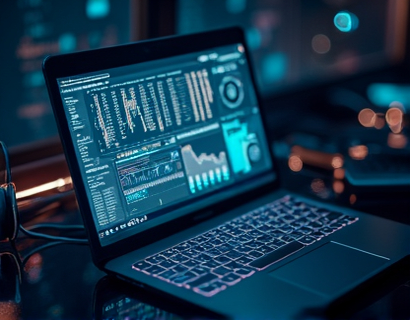AI and Crypto: Catalysts for the Next Evolution in Digital Finance
The intersection of artificial intelligence and cryptocurrency is igniting a revolution in digital finance, promising a future where financial systems are more efficient, secure, and personalized. This article delves into the advanced technologies that are redefining banking and financial services, offering insights into the transformative potential of intelligent solutions in the crypto space. For tech-savvy crypto enthusiasts and innovators, this exploration will provide a deeper understanding of how AI and crypto are converging to create smarter financial systems.
The Emergence of AI in Cryptocurrency
Artificial intelligence has been gradually integrating into the crypto ecosystem, enhancing various aspects of cryptocurrency operations. From trading algorithms to security measures, AI is playing a pivotal role in optimizing and securing blockchain-based transactions. One of the primary areas where AI shines is in predictive analytics. By analyzing vast amounts of historical data, AI algorithms can forecast market trends with remarkable accuracy, providing traders with valuable insights to make informed decisions.
Moreover, AI-driven trading bots have become increasingly popular among crypto investors. These bots use machine learning to adapt to market conditions, execute trades at optimal times, and manage portfolios with minimal human intervention. This not only increases efficiency but also reduces emotional biases that often lead to suboptimal trading decisions. The ability of AI to process and analyze data at speeds unattainable by humans makes it an invaluable asset in the fast-paced world of cryptocurrency trading.
Enhancing Security with AI
Security is a paramount concern in the crypto world, and AI is stepping in to address these challenges. Traditional security measures, while effective, are often static and can be bypassed by sophisticated cyber attacks. AI, on the other hand, offers dynamic and adaptive security solutions. By continuously monitoring transactions and network activity, AI systems can detect anomalies and potential threats in real-time, enabling swift responses to mitigate risks.
One notable application is in fraud detection. AI algorithms can analyze patterns and behaviors to identify suspicious activities, such as unusual transaction volumes or unauthorized access attempts. This proactive approach to security helps protect users' assets and maintains the integrity of the blockchain network. Additionally, AI-powered identity verification systems are being developed to enhance the onboarding process for crypto platforms, ensuring that only legitimate users gain access to services.
Personalization in Financial Services
The integration of AI in digital finance extends beyond trading and security to personalization. Crypto and blockchain technologies, combined with AI, are paving the way for highly customized financial experiences. By leveraging user data and behavior patterns, AI can tailor financial products and services to individual needs and preferences. This level of personalization is transforming how users interact with financial services, making them more intuitive and user-friendly.
For instance, AI-driven financial advisors can provide personalized investment recommendations based on a user's risk tolerance, financial goals, and market conditions. These advisors continuously learn from user interactions and market data, refining their suggestions over time. This not only enhances the user experience but also increases the likelihood of achieving financial objectives. Personalized lending platforms are another area where AI is making a significant impact, offering loan terms and interest rates tailored to each borrower's creditworthiness and financial situation.
Smart Contracts and Automated Processes
Smart contracts, self-executing contracts with the terms directly written into code, are a cornerstone of blockchain technology. When combined with AI, smart contracts become even more powerful, enabling automated and intelligent execution of agreements. AI can enhance smart contracts by adding layers of logic and decision-making capabilities, allowing for more complex and dynamic contractual arrangements.
For example, in supply chain management, AI-powered smart contracts can automatically trigger payments when specific conditions are met, such as the arrival of goods at a designated location. This not only streamlines processes but also reduces the need for intermediaries, lowering costs and increasing efficiency. In the realm of decentralized finance (DeFi), AI-driven smart contracts can optimize trading strategies, manage risk, and execute transactions with minimal human oversight, creating a more seamless and reliable financial ecosystem.
Challenges and Considerations
While the synergy between AI and crypto holds immense potential, it is not without challenges. One of the primary concerns is the regulatory landscape. As AI and crypto continue to evolve, regulators are grappling with how to oversee these technologies to prevent misuse and ensure consumer protection. Navigating this regulatory environment requires a balanced approach that fosters innovation while safeguarding public interests.
Another challenge is the technical complexity involved in integrating AI with blockchain systems. Developing robust and scalable solutions that can handle the high transaction volumes and security requirements of blockchain networks is a significant hurdle. However, ongoing research and development are addressing these issues, with advancements in areas such as decentralized machine learning and homomorphic encryption.
The Future of Digital Finance
The convergence of AI and crypto is set to redefine the future of digital finance, creating a more efficient, secure, and personalized financial landscape. As these technologies continue to mature, we can expect to see even more innovative applications and use cases emerge. From decentralized autonomous organizations (DAOs) that leverage AI for governance and decision-making to AI-enhanced digital identity solutions that ensure secure and private user authentication, the possibilities are vast.
The ultimate goal is to build financial systems that are not only technologically advanced but also accessible and beneficial to a broad range of users. By harnessing the power of AI and crypto, we can create a financial ecosystem that empowers individuals, fosters innovation, and drives economic growth. For those at the forefront of this revolution, the future looks promising, with endless opportunities to shape the next evolution in digital finance.























